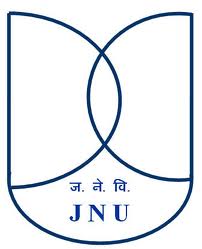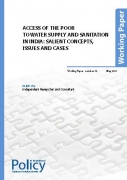/regions/renuka-proposed
Renuka (Proposed)
Photo exhibit on water conservation - Delhi's might, Renuka's plight - JNU Art and Aesthetics School, Delhi, September 26 – October 2, 2011
Posted on 30 Sep, 2011 08:19 PMPhoto Exhibit: Delhi's might, Renuka's plight - 26th Sept-2nd Oct
Venue: Art & Aesthetics Gallery, JNU Campus, New Delhi

The School of Arts and Aesthetics, JNU is one of the few places in India that offers post-graduate degree courses in the theoretical and critical study of the cinematic, visual and performing arts. Moreover, it is the only place in India where these disciplines are offered in an integrated programme that allows students to understand the individual arts in a broader context of history, sociology, politics, semiotics, gender and cultural studies apart from being able to integrate the study of one art form with the other arts. The three streams of study offered at the school are Visual Studies, Theatre & Performance Studies and Cinema Studies.
Land acquisition for Renuka dam continues despite uncertainties - Press release from the Renuka Bandh Sangharsh Samiti
Posted on 21 Dec, 2010 12:24 PMForwarded to the portal by: Manshi Asher
Content Courtesy: Himvani
Author: Renuka Bandh Sangharsh Samiti
Despite protest against forced acquisition of land, Himachal Pradesh Power Corporation Limited (HPPCL) and revenue administration today notified Section 9 of the Land Acquisition Act 1894, for approximately 680 big has (about 57 hectares) of land of Panaar Village for the Renuka Dam Project. In a letter to the Chief Justice of Himachal Pradesh High Court sent today, activists appealed for a stay on land acquisition for the project, considering the uncertainty surrounding the project.
Access of the poor to water supply and sanitation in India - Salient concepts, issues and cases by the International Policy Centre for Inclusive Growth
Posted on 20 Dec, 2010 10:04 PM This paper by the International Policy Centre for Inclusive Growth deals with access of the poor to water supply and sanitation in India. It argues that economic, technical, institutional as well as social factors constrain access to safe drinking water and proper sanitation in India for both the urban and rural poor, and that coverage figures do not reflect this restricted access. It finds that, increasingly, communities are being required to manage their own water and sanitation schemes, not just in rural areas but in urban ones as well.
This paper by the International Policy Centre for Inclusive Growth deals with access of the poor to water supply and sanitation in India. It argues that economic, technical, institutional as well as social factors constrain access to safe drinking water and proper sanitation in India for both the urban and rural poor, and that coverage figures do not reflect this restricted access. It finds that, increasingly, communities are being required to manage their own water and sanitation schemes, not just in rural areas but in urban ones as well.
The paper deals with domestic water supply and sanitation and presents a historical overview of the phenomenon in rural and urban India. This is followed by a critique of available figures for coverage which, it is contended, seem exaggerated because they do not account for the several constraints to access. It addresses the specific institutional problems faced in the public sector delivery of these two utilities in India apart from dealing with the parallel yet thus far limited presence of the private sector in these twin arenas.